The Mark of the One-Note Character
not everyone should be well-rounded
When I read scripts that are a bit weaker or beginner-level, one thing I notice is that the characters not only seem to speak the same, but they all seem to have the same flavor of humanity to them.
Reading the opening twenty pages is like walking into a crowded room where everyone might have different names or occupations, but they all are kind of dressed the same, sorta speak the same, and all seem to be feeling a similar range of emotions and thinking similar thoughts.
It’s often disorienting. Even worse, it’s usually boring.
In these scripts, interchangeable minor or supporting characters will arrive on a scene, play some plot function, and then disappear into the ether until it’s time for them to move the story forward again.
Which sometimes is fine. There’s only so much room in a script. But if all of the supporting and minor characters function this way, a generic lifelessness will accrue. Eventually, even your main characters will get more boring because they’re always playing off of the same type of a personality.
In trying to make all of their characters well-rounded, the screenwriter mostly succeeds in creating a mush of sameness.
That’s why I’m a big believer in marking a minor character — ideally in their very first scene — with one bold simple brushstroke. That is, purposefully reducing their complex humanity to one primary personality trait, or physical trait, or preoccupation, or even catchphrase.
Once you define a minor or supporting character this way, you’re then free to use that simple mark as a shorthand when reintroducing them. But, you can also always offer a new variation or wrinkle on that marking. And, you can later even reveal that mark to actually be a mask that covers-up their more authentic, more complicated self.
But before you can do any of the above, first you have to clearly mark that character.
This can be done to various extremes. You can mark a character as a kind of grotesque exaggeration, like the flamboyant Jesus Quintana in The Big Lebowski.
Or, you can mark a character as a bit more grounded, but still perhaps a bit of an exaggeration, like the excitable TV director Sam Wanamaker in Once Upon a Time in Hollywood.
Or you can have a character with a realistic, perhaps even flat personality, but make them stand out by marking them with a singular fixation, like the sex-obsessed folk singer Tom Frank in Nashville.
Whatever register you’re writing in, I think the key is to mark these characters early and mark them clearly. Otherwise these more minor and supporting characters will risk becoming a white noise of different names all saying sort of the same thing.
I often think of screenwriting as just creative problem-solving.
While we were making season two of Poker Face — still 100% on Rotten Tomatoes! now available on Peacock! — sometimes we’d find ourselves in an enviable dilemma.
We’d have a small one or two scene role that was more or less just functional. It’s the kind of character I was just critiquing, a character who is designed just to carry exposition and move the story forward, but who isn’t intended to be very interesting in and of themselves. These are usually thought of as day-player type of roles. The bartender cleaning glasses while answering the detective’s questions or the florist who says she hasn’t seen the missing wife.
But because season one was such a success and so many gifted people wanted to join the show — even if just for a half-day’s work — sometimes we’d end up casting a really gifted comedic actor or actress for one of these roles.
So suddenly, I’d realize that we’d be bringing somebody great in, someone recognizable. Lovely. But sometimes the role we had them playing was not tapping at all into their talents. A good problem to have, but still a bit of a problem.
One instance where this happened was in the mid-season episode that I wrote, called “Hometown Hero.” It’s about a washed up minor league pitcher (played by Simon Rex) who once was a hotshot prospect, but who blew his chance at greatness.
Simon’s role isn’t one of these flat roles I’m talking about. His is a pretty meaty guest role. I won’t go into the details of the story, but since our show is a murder-of-the-week mystery show, you can imagine that things go somewhat awry for this character.
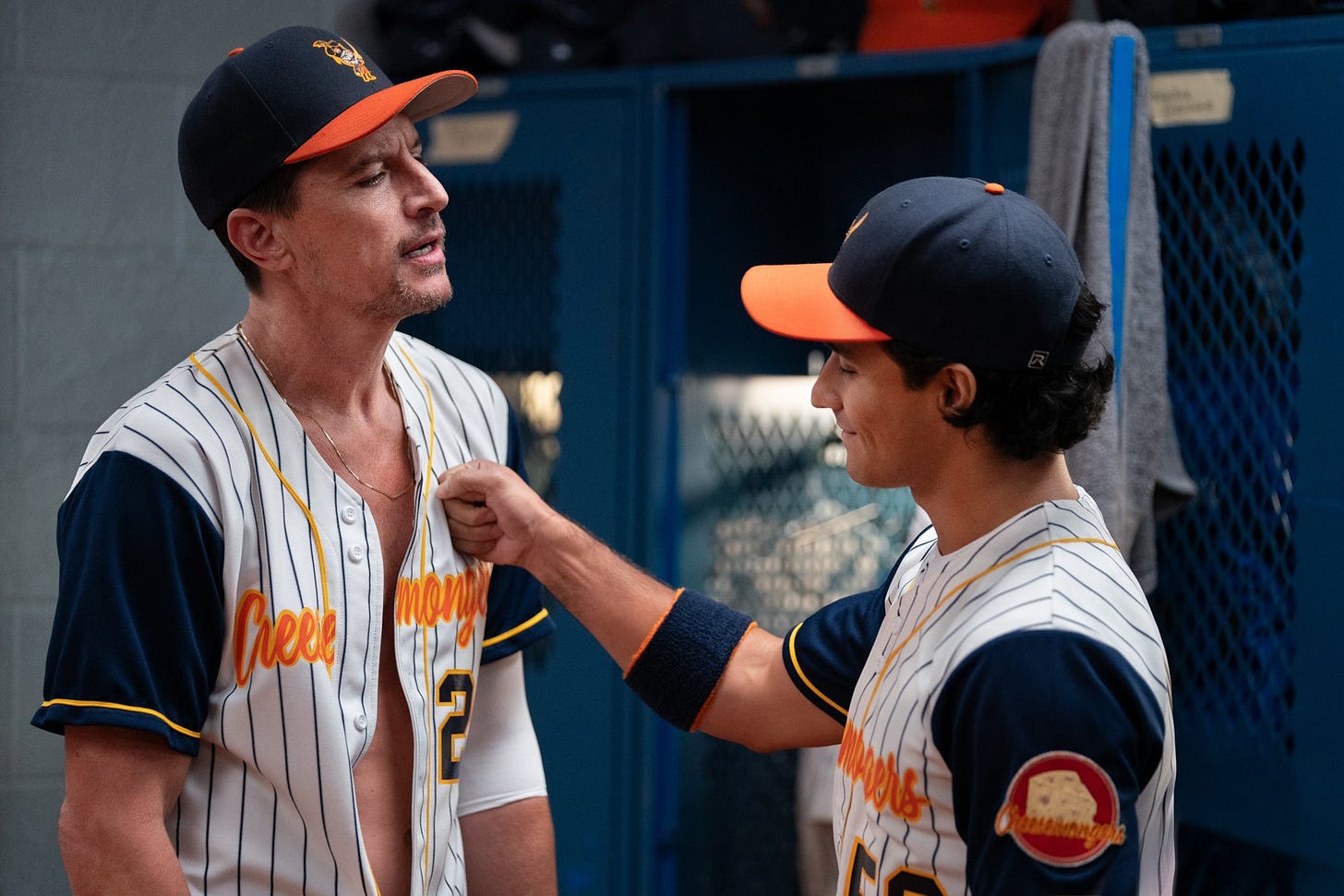
My script had a handful of pretty interesting one-off characters, in my opinion. Simon Rex’s aging pitcher, a young hotshot pitcher just called up to the team (Brandon Perea), the team’s owner (Carol Kane), the team’s manager (Gil Birmingham). Even a few of Simon and Brandon’s teammates had quirky personalities. And there’s a drug-induced spiritual cameo that I think is pretty rad.
But as my idol Howard Hawks has pointed out, even in a comedy you need some real people around to react to all the chaos. This was Hawks’ own critique of his screwball classic Bringing Up Baby, where every character was nuts, and which I think he improved upon in His Girl Friday by having grounded characters intermingled with the zaniness.
Most of my Poker Face script takes place in and around a minor league baseball stadium. In my script, there was a radio broadcaster character. I’d written this character as a pretty straight, grounded, normal person. (I’m nothing if not a good Hawks disciple.)
The broadcaster appears throughout the episode, but there were no jokes for this character, really. This was just a small town Vin Scully type, straight-forwardly commenting on the team’s losing streak and on some of the screwball stuff going on during the games. My philosophy was that a normal, even flat character here would help ground the hijinks.
But in the chaotic casting process of the show, we cast Ego Nwodim for the part. If you watch Saturday Night Live, you know that Nwodim is one of the hardcore funniest performers of recent SNL vintage. So now we had this gifted comedic actress coming to our comedic show, but doing a flatly straight-forward character that, frankly, I’d always imagined being a background noise sort of role.
Something needed to be done.
One reason why I started this substack is because the screenwriting advice I usually see floating around seems awfully abstract and theoretical to me. And it rarely seems to match up with the actual screenwriting gig that I do in my workaday life.
I’ll catch wind of screenwriting debates about what page number the act one turn should occur on, or whether or not you should bold your sluglines, etc. But these are never the kinds of issues that I find coming up in my daily life as a working screenwriter. Not in development, not in production, not in features or in TV.
What I do find coming up are very practical matters, like what I present here. Problems small and large that need to be addressed at the script level.
For this Poker Face episode, I learned pretty last second that we had just outkicked our coverage, so to speak, by casting a performer who was in my opinion too gifted and recognizable for a very modest role.
So I kinda had two options. Keep the role as it was and risk disappointing viewers who would perk up seeing Nwodim in the part, only to not have her be given anything funny to do.
Or, revise the role to make it at least a little bit comedic, but risk piling on quirkiness atop of quirkiness, and throwing off the tonal balance.
I went with option number two. Punching up the part, to at least give it a smidgen of humor worthy of the actress playing it.
The only problem: a comedic punch-up is not a strength of mine. Left to my own devices, my scripts usually do have humor to them. But not like hard comedy humor. My own scripts are only funny relative to the norm for the straitlaced macho genres I usually work in: crime, western, mystery.
Plus, I aim more for hangout, character-driven humor than laugh-out-loud gag or joke or camp humor. The humor I’m usually aiming for is more like the lived-in humor of a weird Robert Altman film, or Howard Hawks’ Rio Bravo, or Richard Linklater’s Dazed and Confused.
But Poker Face isn’t a Tony Tost show. It’s a Rian Johnson show. And Rian Johnson is funny funny. He has a very specific type of humor that I might call “cheeky valedictorian.” It’s smart, subversive, quick-witted, plus there’s an undertow of kindness to it.
By contrast, my sense of humor is closer to quiet redneck weirdo. I like to write absurd stuff with an undertow of soulful darkness to it. Different vibe.
Anyway, thankfully we have a writer on Poker Face named Wyatt Cain who has a very Rian-esque voice that balances cleverness with playful buoyancy. So I asked Wyatt to do a last second punch-up pass on Nwodim’s scenes in my script.
And after he did a quick, effective pass on this front, I would end up asking him to do the same for supporting characters in other episodes as well. Wyatt would nail it every single time. Invaluable.
I also think I learned something from seeing him pull this off multiple times. Each time Wyatt punched up a role, it felt like he’d go in and give a formerly flat character some single defining trait, obsession, or problem to deal with. Just this one weird-yet-relatable thing. And suddenly, this character and the scenes they were in would come alive.
In essence, Wyatt would take a no-note minor character and make them a one-note minor character. But in the best way. Each time that character showed back up in the story, it’d generate anticipation. You knew there would be some new wrinkle or complication with their defining trait, you just didn’t know what it would be until it happened.
In one episode, it’s a lawyer who’s too much of a people pleaser. In another, it’s an FBI agent with a fixation on plants and shrubs. In another, it’s a shop clerk who suffers from face blindness.
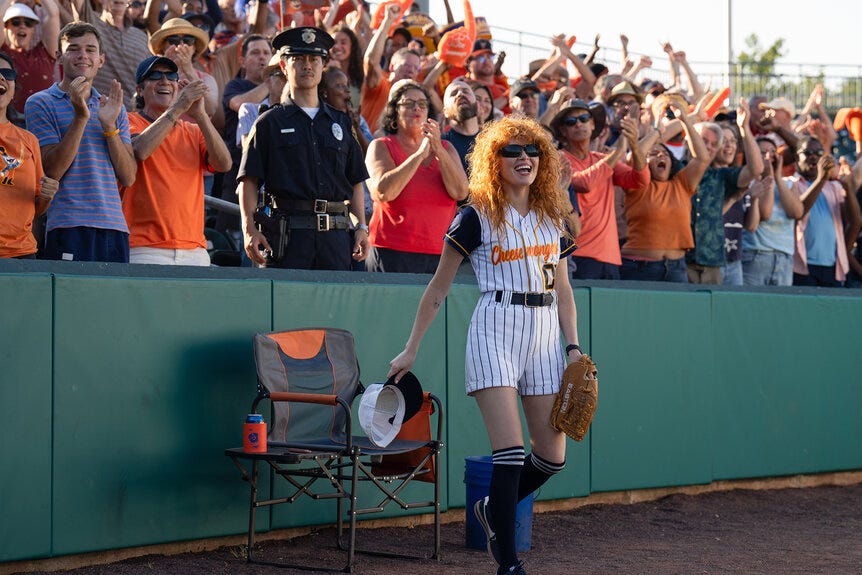
For Nwodim’s broadcaster character, Wyatt gave her a fixation with the fabricated-cheese food products sold at the ballpark. As the episode progressed, she’d start developing symptoms related to this fixation. And then…well, that was kind of it.
But that’s all it needed. Nothing too big, nothing you would make a highlight reel clip out of. But it marked this broadcaster with just the right note of character-based humor. And it did so without distracting from the main story.
Maybe more importantly, it gave Nwodim something specific to play. She came in and did her multiple broadcast booth scenes in like an hour or two. (Having memorized the new lines Wyatt had written the day before.) The combo of her performance — Nwodim’s funny enough to know how to play absurd lines completely straight — and Wyatt’s new lines provide some of my biggest laughs from the episode.
There’s an image of Carey Mulligan’s character Jean from Inside Llewyn Davis at the top of this post. I think you could argue that she’s a one-note character, predominantly marked by her seething anger. But that’s not a criticism of her character.
Jean is cast and performed and conceived so well, her initial one-note personality becomes the basis of terrific storytelling.
First there’s just the comedic, surprising contrast between Jean’s sweet bookish appearance and the filthy language she uses to communicate her seething rage at Llewyn. This is compounded when Jean takes the stage as part of a Peter, Paul, and Mary-esque folk trio to sing a lilting, gentle rendition of “500 Miles.”
The contrast between the serenity of the song and the rage of the woman singing it is startling. (And we might understand a bit of why Jean is so full of rage when the bar owner watches this moving performance and leans over to Llewyn and remarks, “That Jean, I’d sure like to fuck her.”)
But then there’s also moments where Jean reveals a softer, more vulnerable side — like when she suddenly tells Llewyn how she misses his now-deceased singing partner Mike. With these little grace note moments, we come to suspect that Jean’s anger is a protective mask to cover up the hurt and disappointment in her life.
There’s not a ton more to the character. But Jean is a key thread in the emotional and tonal tapestry of the film. With just a couple of scenes and one primary personality trait, Jean still feels like a fully-formed individual. And I can’t imagine the movie without her.
Instead of a big spotlight monologue about Jean’s backstory or interior life, we’re given a juxtposition of elemental traits. It’s efficient, it’s entertaining, and it allows us to fill in the rest of her personality and interior life and backstory ourselves. It also doesn’t hurt that Jean is played by Carey Mulligan, who can take a near-sketch of a character (like in Drive) and make her feel like a real person.
I think all of this only really works because Jean is marked so clearly from the get-go as a character overtly defined by her anger. Introducing a one-note character doesn’t mean you have to keep ringing that some note in the same way every time they appear. Instead, that one-note can be the means by which you tell a surprisingly complex human story without taking up too much time or space to do so.
I’ll end with a favorite one-note character, from a film by Howard Hawks, my favorite director. The character is Angelo, played by Vince Barnett in the original Scarface from 1932.
Angelo is one of Tony Camonte’s right-hand men. Like all of these gangsters, Angelo is dimwitted and essentially a child. Hawks and his screenwriter Ben Hecht clearly mark Angelo from the get-go by his complete inability to answer a phone and take down a message.
The first time Angelo tries to do this, it illustrates the sheer level of incompetency of these criminals. The second time Angelo answers the phone and tries to take a message, it’s during a wild gunfight, bringing a madcap screwball humor to an exciting action scene. The third time Angelo answers the phone, it’s after he’s been shot. He finally takes a message down correctly, gets excited about it, and then dies. It’s a sad little grace note of humanity.
By selecting a terrific initial marking for Angelo — his inability to take a message on the phone — and then giving us two very distinct variations on it, Hawks and Hecht create an emotional mini-aria that wouldn’t have been possible with a more well-rounded version of the character.
To mix metaphors — they give Angelo just one note, but they milk that note for all it’s worth. And I would argue the Coens do the same with Jean.
FYI — Another installment of my long-form interview with my poet pal Tim VanDyke is available over at his excellent blog Dear Bees. In this installment I foolishly discuss the role of politics in my writing, as well as detail the technical genealogy of a single shot in my forthcoming film Americana, and my sincere belief in the movie gods.


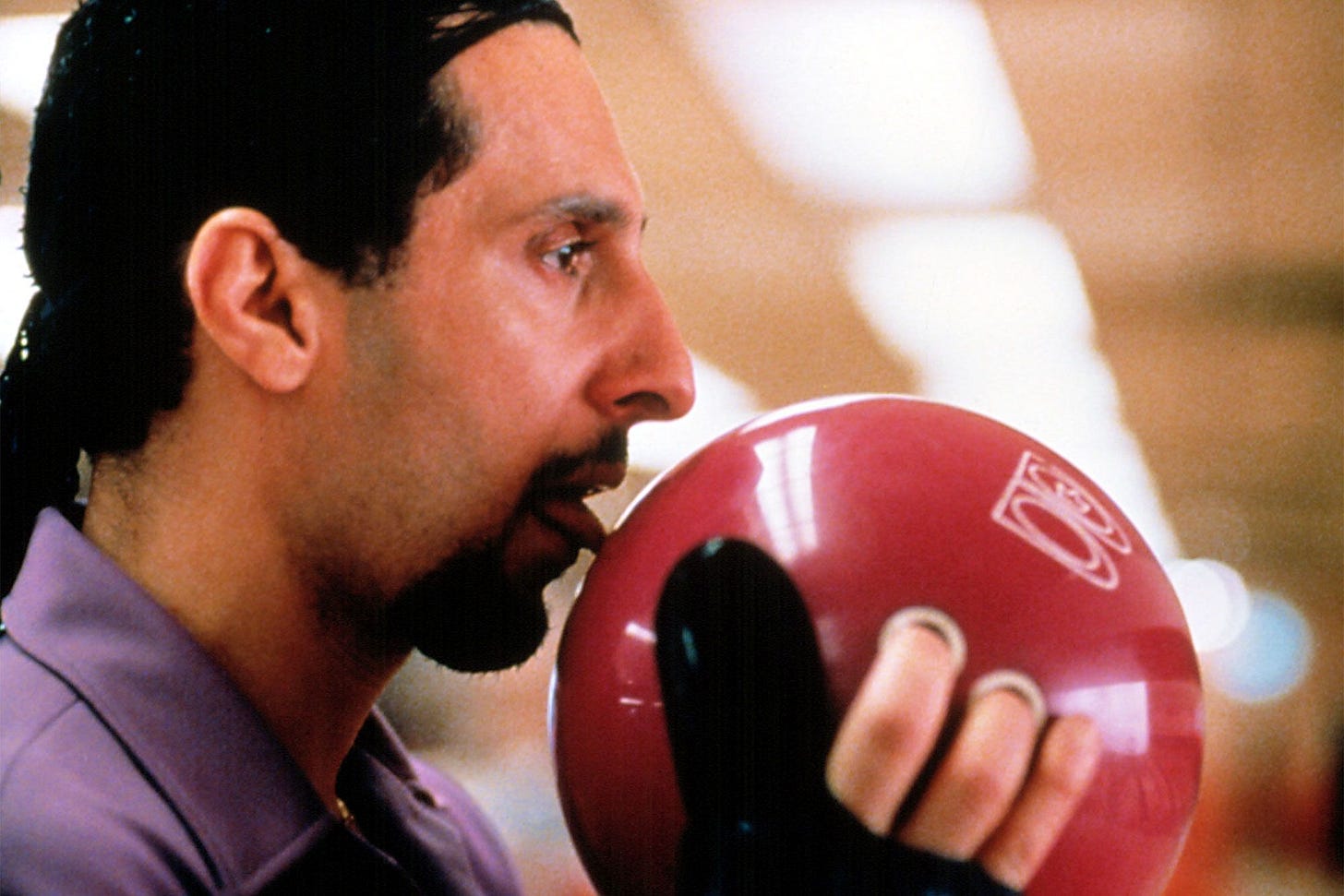
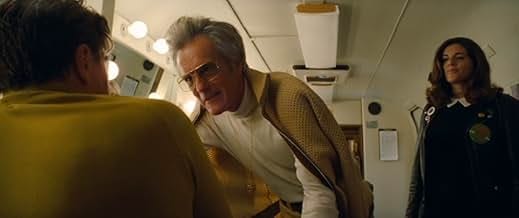
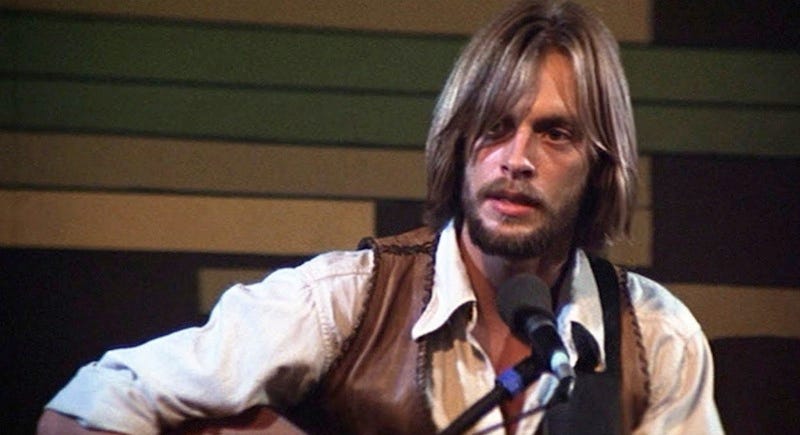

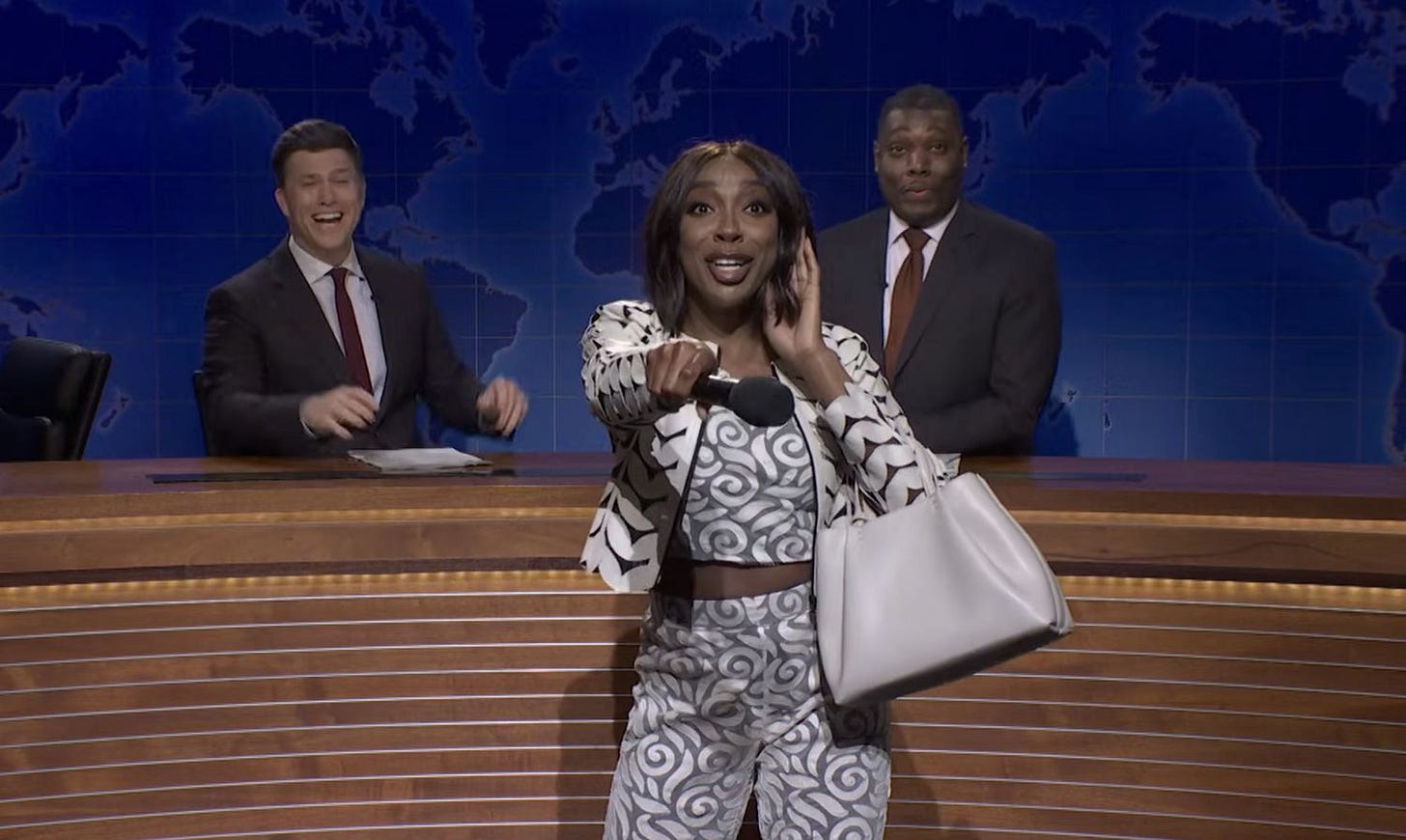
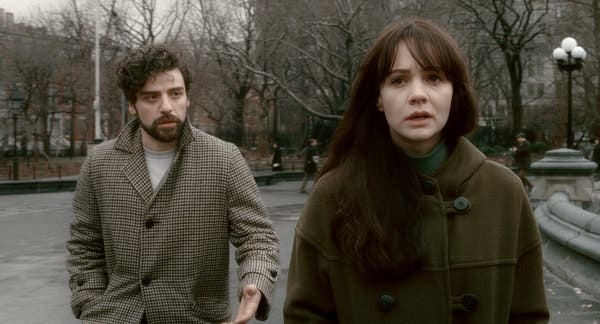

Man, that was awesome. I'm going through this same "problem" right now, I need to punch up some dialogue for a series I'm working on, this will help a lot, many thanks! And please keep sharing your experience on Poker Face, I love the show and since the first season it gave me a vibe that it would be something you would write. So happy to see you on the show.
'same flavor of humanity' is a wonderful way to put it